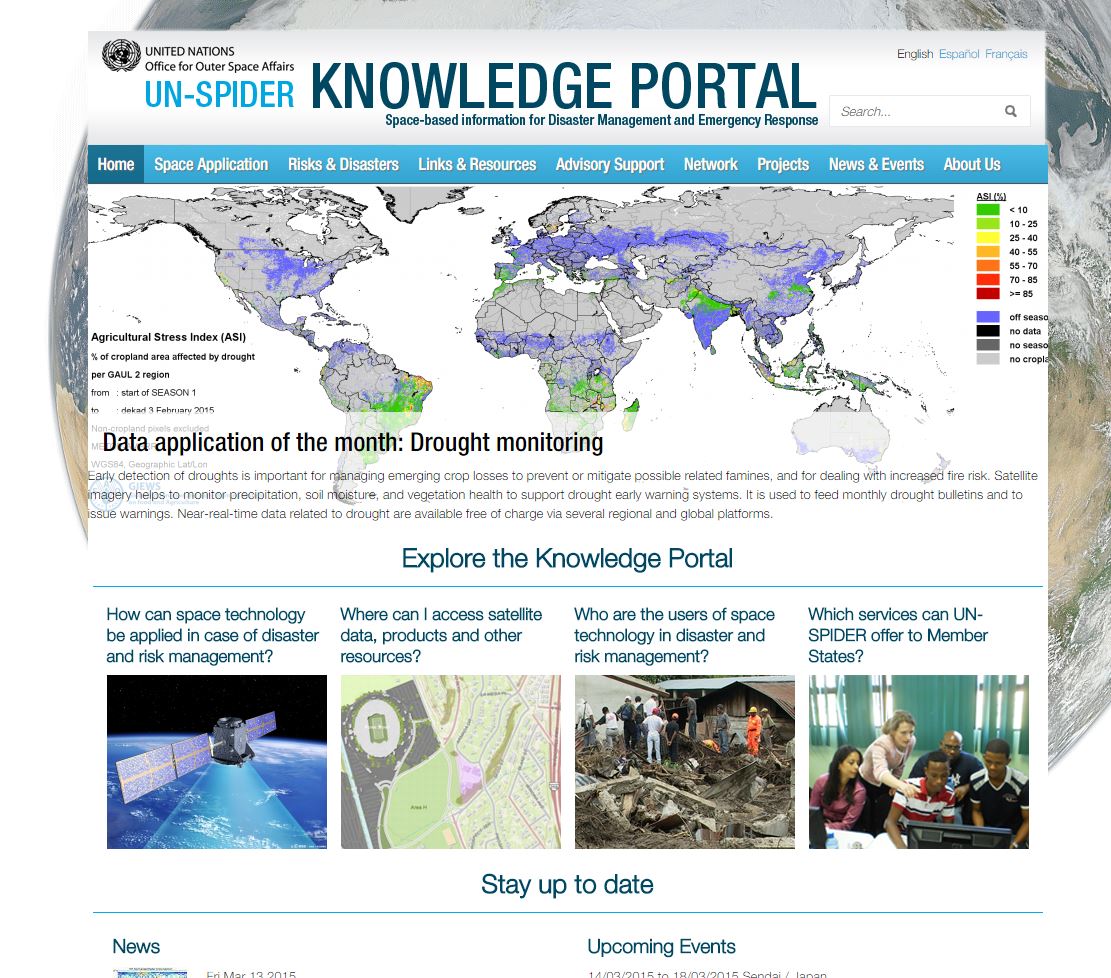UN-SPIDER's Knowledge Management

When tackling a disaster situation or when assessing the risk of a potential disaster, knowledge is the key. Emergency responders and disaster-risk managers face the challenge of identifying knowledge keepers, information focal points and data sources - sometimes under the pressure of extremely short timeframes. Finding the right path from data to information to knowledge is not always easy in a world where we tend to be rather overwhelmed with information. UN-SPIDER works to identify effective knowledge management as a crucial parameter in facilitating the use of space-based information for the entire disaster management cycle.
As a bridge between stakeholders, UN-SPIDER's knowledge management efforts are targeting the intersection of disasters/disaster risks and space applications. The communities involved are quite heterogeneous - both on the provider and on the user side - and so are the approaches for being a knowledge broker for these stakeholders. The needs and prerequisites of the disaster, disaster-risk, and space communities can vary considerably from region to region and include a variety of actors ranging from local emergency responders, to national and regional policy makers and decision-makers, from space programme managers and commercial providers to technical specialists and scientific researchers. In order to bring all these stakeholders to the same table, UN-SPIDER organizes expert meetings and conferences and continuously builds on its international network of Regional Support Offices and National Focal Points. Additionally, the programme's Advisory Support Missions give Member States concise input how to incorporate space-based information in national or local risk management and emergency response policies.
Yet, knowledge management is more than giving people access to data, information or giving them a platform to exchange ideas and lessons learned. The challenge is to systematically and continuously compile the knowledge held by individuals and institutions in the form of standard operating procedures, know-how or experience which is sometimes documented and sometimes not. Subsequently, the compiled knowledge has to be processed and disseminated in a global and user-friendly way to make sure it reaches its stakeholders. This is the aim of UN-SPIDER's online Knowledge Portal. The portal was established in 2009 and it is available in multiple languages. The portal serves as a hub for all relevant information regarding the access to and the use of space-based information in the context of disasters and disaster risks. It makes available good practices, data sources, tools, tutorials and lessons learned as well as news, events and training opportunities on all pertinent topics.
